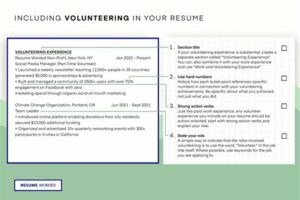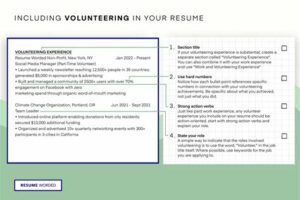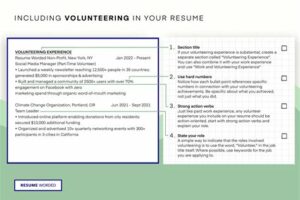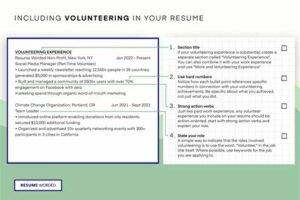Table of Contents
Looking to make a difference in the lives of people with diabetes? Explore various volunteer opportunities in diabetes-related organizations and support those affected by this chronic condition. Whether through fundraising events, educational programs, or providing emotional support, get involved in diabetes volunteer work and contribute to raising awareness and improving the quality of life for individuals living with diabetes.
Diabetes Volunteer Work is an incredibly rewarding experience that allows individuals to make a meaningful difference in the lives of those living with this chronic condition. Whether you have a personal connection to diabetes or simply a desire to help others, volunteering in this field provides a unique opportunity to contribute to the well-being of others while gaining valuable skills and knowledge. By dedicating your time and expertise, you can play a vital role in raising awareness, supporting patients, and promoting a healthier lifestyle for those affected by diabetes.
The Importance of Diabetes Volunteer Work
Diabetes is a chronic condition that affects millions of people worldwide. It requires constant management and support to ensure a good quality of life for those living with the disease. While medical professionals play a crucial role in providing care, volunteers also have a significant impact on the diabetes community. Engaging in diabetes volunteer work not only helps individuals affected by the condition but also contributes to raising awareness, educating others, and advocating for better diabetes management. This article explores the importance of diabetes volunteer work and how it can make a difference in the lives of those affected.
Supporting Individuals with Diabetes
One of the primary goals of diabetes volunteer work is to provide support to individuals living with the condition. Volunteers often work directly with patients, offering emotional support, guidance, and resources to help them navigate the challenges of managing diabetes. By sharing personal experiences and knowledge, volunteers can offer practical advice and empower individuals to take control of their health.
Education and Awareness
Volunteers also play a crucial role in educating the public about diabetes and raising awareness of the condition. They organize workshops, seminars, and awareness campaigns to promote understanding and dispel myths surrounding diabetes. By providing accurate information, volunteers help to reduce stigma and encourage early detection and prevention of the disease.
Advocating for Better Diabetes Management
Diabetes volunteers often engage in advocacy work to promote better diabetes management at both individual and systemic levels. They collaborate with healthcare providers, policymakers, and community organizations to ensure that people living with diabetes have access to affordable medications, quality healthcare, and necessary resources. By advocating for improved diabetes management, volunteers contribute to creating a more supportive environment for those affected by the condition.
Volunteering Opportunities for Everyone
Diabetes volunteer work offers diverse opportunities for individuals to contribute their skills and time. From serving as mentors for newly diagnosed patients to organizing fundraising events, there are various ways to get involved. Healthcare professionals can offer their expertise by volunteering at diabetes clinics or providing educational sessions, while others can engage in community outreach programs or join support groups.
Mentoring and Peer Support
Mentoring programs play a vital role in diabetes volunteer work. Volunteers with personal experience in managing diabetes can serve as mentors for individuals who are newly diagnosed or struggling with the condition. Through regular meetings and discussions, mentors provide emotional support, share coping strategies, and help individuals develop effective self-management techniques.
Organizing Fundraising Events
Fundraising events are an excellent way to support diabetes research, education, and advocacy efforts. Volunteers can organize walks, runs, or charity events to raise funds for diabetes organizations. These events not only generate monetary support but also bring communities together to support individuals affected by diabetes.
Community Outreach Programs
Engaging in community outreach programs allows volunteers to reach a wider audience and promote diabetes awareness. They can conduct educational sessions at schools, community centers, and workplaces to provide information about risk factors, prevention strategies, and the importance of early detection. By reaching out to diverse communities, volunteers can address disparities in diabetes care and help individuals make informed decisions regarding their health.
Making a Lasting Impact
Engaging in diabetes volunteer work allows individuals to make a lasting impact on the lives of others. By providing support, education, and advocacy, volunteers contribute to improving the overall well-being and quality of life for those affected by diabetes. It is a rewarding experience that not only benefits the diabetes community but also enhances personal growth, empathy, and understanding.
Becoming a Diabetes Volunteer
If you are passionate about making a difference in the lives of individuals affected by diabetes, there are numerous ways to get involved. Reach out to local diabetes organizations, hospitals, or community centers to inquire about volunteer opportunities. By dedicating your time and skills, you can become an essential part of the diabetes support network and contribute to creating a healthier future for all.
The Importance of Diabetes Volunteer Work
Diabetes volunteer work plays a vital role in contributing to the community by raising awareness about diabetes and its impact on individuals and society. Volunteers help educate and support individuals living with diabetes, their families, and the general public. By actively engaging in volunteer work, individuals contribute to spreading knowledge about healthy lifestyles, diet, and exercise to prevent the onset of diabetes or manage it effectively if already diagnosed. Moreover, engaging in diabetes volunteer work allows individuals to directly impact others’ lives by providing emotional support and helping them manage their condition effectively. Volunteers often help create a supportive environment that enhances the quality of life for people living with diabetes.
Contributing to the Community
Diabetes volunteer work is crucial in contributing to the community by raising awareness about diabetes and its impact. Volunteers play a significant role in educating individuals about the risk factors, symptoms, and preventive measures associated with diabetes. By organizing workshops, health fairs, and support groups, volunteers connect with individuals who may be at risk of developing diabetes or are already affected by it. This outreach helps in disseminating information and promoting healthy lifestyle choices to prevent the onset of diabetes or manage it effectively.
Promoting Prevention and Early Intervention
Diabetes volunteers work towards promoting preventive measures and early intervention strategies to combat the rise in diabetes cases. Through their volunteer work, they contribute to spreading knowledge about the importance of maintaining a healthy lifestyle, including regular exercise and a balanced diet, which can significantly reduce the risk of developing diabetes. Volunteers also emphasize the need for regular screenings and early diagnosis to detect and manage diabetes at an early stage. By actively advocating for prevention and early intervention, diabetes volunteers play a crucial role in reducing the burden of diabetes on individuals and society as a whole.
Enhancing Quality of Life
Engaging in diabetes volunteer work allows individuals to directly impact others’ lives by providing emotional support and helping them manage their condition effectively. Living with diabetes can be challenging, both physically and emotionally. Volunteers offer a supportive environment where individuals can share their experiences, concerns, and triumphs. By fostering a sense of community, volunteers enhance the quality of life for people living with diabetes. They provide guidance on managing blood sugar levels, medication adherence, and coping strategies for dealing with the daily challenges of living with diabetes. Through their support, volunteers empower individuals to take control of their health and lead fulfilling lives.
Types of Diabetes Volunteer Work
There are various types of diabetes volunteer work that individuals can engage in to make a difference in the lives of those affected by the condition.
Community Outreach Programs
Diabetes volunteers often participate in community outreach programs to educate and raise awareness about diabetes risk factors, symptoms, and preventive measures. They may conduct workshops, health fairs, or lead support groups to connect with individuals at risk of or already affected by diabetes. These programs aim to reach out to diverse populations, including schools, workplaces, and community centers, to provide information and resources that promote healthy lifestyle choices and diabetes management.
Fundraising and Advocacy
To support research, medical advancements, and access to diabetes care, volunteers often engage in fundraising activities. They advocate for policy changes and collaborate with healthcare organizations to ensure resources and support are available for those affected by diabetes. Fundraising events such as walks, runs, and charity drives not only raise funds but also raise awareness about diabetes and the importance of supporting those living with the condition.
Peer Mentoring and Support
Diabetes volunteers lend a helping hand by becoming peer mentors for individuals living with diabetes. They provide encouragement, guidance, and support in managing the condition through shared experiences, fostering a sense of community and understanding. Peer mentoring programs allow individuals to connect with others who have firsthand knowledge of the challenges associated with diabetes. By sharing their own experiences and strategies for successful diabetes management, volunteers empower others to take control of their health and well-being.
Training and Education for Diabetes Volunteers
Diabetes volunteer organizations recognize the importance of providing adequate training and education to volunteers to ensure they are equipped with the necessary knowledge and skills to effectively contribute to their volunteer work.
Initial Orientation
Diabetes volunteers often undergo an initial orientation to gain knowledge about various aspects of the condition, including its causes, symptoms, treatment options, and potential complications. This orientation equips volunteers with the necessary foundation to effectively educate and support individuals living with diabetes. Volunteers learn about the importance of regular blood sugar monitoring, medication management, and healthy lifestyle choices. This knowledge enables them to provide accurate information and guidance to those they serve.
Continuous Learning
Diabetes volunteer organizations understand the need for ongoing education and training opportunities to keep volunteers up to date with the latest developments in diabetes management, prevention, and research. Regular training sessions and workshops provide volunteers with updated information on advancements in diabetes care, new treatment options, and emerging research findings. Continuous learning ensures that volunteers remain informed and can provide accurate information and support to those they serve.
Building Empathy and Communication Skills
Training for diabetes volunteers focuses on developing essential skills such as empathy, active listening, and effective communication. Volunteers are trained to understand and address the emotional and psychological needs of individuals living with diabetes, promoting a holistic approach to healthcare. By building strong interpersonal skills, volunteers create a supportive and non-judgmental environment where individuals feel comfortable sharing their experiences and seeking guidance. These skills enable volunteers to provide emotional support, offer solutions to challenges, and empower individuals to effectively manage their diabetes.
It is important to note that while the information provided here is accurate and informative, it is always recommended to refer to qualified healthcare professionals for specific medical advice.
Diabetes Volunteer Work is an essential and impactful way to contribute to the well-being of individuals living with diabetes. By dedicating time and effort to this cause, volunteers play a crucial role in supporting those affected by this chronic condition. It is important to approach diabetes volunteer work with a professional voice and tone to ensure that our efforts are effective and beneficial for the community we serve.
When engaging in diabetes volunteer work, it is essential to adopt a professional tone to establish credibility and trust among the individuals you are assisting. This includes using clear and concise language, avoiding slang or jargon, and presenting information in a manner that is easily understandable for everyone, regardless of their background or education level.
Here are some key points to consider when participating in diabetes volunteer work:
- Knowledge and Expertise: As a volunteer, it is crucial to develop a solid understanding of diabetes, its causes, symptoms, and management. This knowledge will enable you to provide accurate information and support to those seeking assistance. Stay updated with the latest research and medical advancements in the field to ensure you are providing the most up-to-date information.
- Empathy and Compassion: Approach your volunteer work with empathy and compassion, recognizing the challenges that individuals with diabetes face on a daily basis. This will help create a supportive and non-judgmental environment where individuals feel comfortable discussing their concerns, fears, and successes related to their diabetes management.
- Effective Communication: Communicate clearly and effectively with all individuals you encounter during your volunteer work. Use active listening skills to understand their needs and concerns fully. Provide information in a simple and concise manner, avoiding medical jargon or complex terminology that may confuse or overwhelm those you are assisting.
- Resourcefulness: Volunteers should be resourceful and knowledgeable about available resources and support systems for individuals with diabetes. This may include providing information about local support groups, educational materials, or connecting individuals with healthcare professionals who can address their specific needs.
- Professional Boundaries: Maintain professional boundaries when interacting with individuals you assist. Respect their privacy and confidentiality, refraining from sharing personal details or discussing sensitive information without consent. Treat each individual with respect and dignity, ensuring that their autonomy and decision-making are upheld.
In conclusion, engaging in diabetes volunteer work is a valuable way to contribute to the diabetes community. Adopting a professional voice and tone allows us to effectively communicate with individuals affected by diabetes, providing them with the support, knowledge, and resources they need to manage their condition successfully. By following these guidelines, we can make a meaningful difference in the lives of those living with diabetes.
Thank you for taking the time to visit our blog and learn more about diabetes volunteer work. We hope that this article has provided you with valuable insights and information on how you can make a difference in the lives of those affected by diabetes. As you may already know, diabetes is a chronic condition that affects millions of people worldwide, and it requires ongoing care and support. By volunteering your time and skills, you can contribute to improving the lives of individuals living with diabetes and help raise awareness about this prevalent health issue.
One of the main reasons why volunteering for diabetes-related causes is so important is because it allows you to directly impact the lives of individuals who are managing this condition. Whether you choose to volunteer at a local clinic, community center, or even online, you will have the opportunity to assist individuals in managing their diabetes effectively. You may provide them with emotional support, educate them about healthy lifestyle choices, or help them navigate the healthcare system. Your presence and willingness to lend a helping hand can make a significant difference in their lives, empowering them to better manage their condition and improve their overall well-being.
Moreover, volunteering for diabetes-related initiatives provides an opportunity for personal growth and learning. By engaging in this type of work, you will gain valuable knowledge about diabetes, its management, and the challenges faced by those living with the condition. This newfound understanding can not only enhance your own health literacy but also enable you to become an advocate for diabetes awareness within your own community. Furthermore, volunteering often involves collaborating with other passionate individuals who share the same goal of making a positive impact. The connections you make through volunteering can be invaluable, allowing you to exchange ideas, gain insights from experienced professionals, and create lasting friendships.
In conclusion, diabetes volunteer work offers a unique opportunity to give back to the community and support individuals living with this chronic condition. By volunteering your time, skills, and compassion, you can make a significant difference in the lives of those affected by diabetes. Whether you choose to provide direct care, raise awareness, or assist in research efforts, your contribution is invaluable. We encourage you to explore various volunteer opportunities available in your area or online and join the movement towards a world where diabetes is better understood and managed. Together, we can make a positive impact and improve the lives of individuals living with diabetes.
Once again, thank you for visiting our blog, and we hope that you feel inspired and motivated to take action. Together, let’s make a difference!
Video Diabetes Volunteer Work
People also ask about Diabetes Volunteer Work:
What is diabetes volunteer work?
How can I get involved in diabetes volunteer work?
What are the benefits of volunteering for diabetes organizations?
Are there any specific skills required for diabetes volunteer work?
What types of activities can I expect to be involved in as a diabetes volunteer?
Answers to People also ask about Diabetes Volunteer Work:
Diabetes volunteer work involves participating in activities and initiatives aimed at raising awareness, supporting individuals living with diabetes, and promoting healthy lifestyles. It can include organizing events, providing assistance at clinics or support groups, fundraising, and educating others about diabetes and its management.
To get involved in diabetes volunteer work, start by reaching out to local diabetes organizations, hospitals, or community centers that offer diabetes-related programs. You can inquire about volunteer opportunities, express your interest, and ask how you can contribute. Online platforms such as volunteer websites and social media groups can also provide information on available positions.
Volunteering for diabetes organizations offers several benefits. It allows you to make a positive impact on the lives of individuals affected by diabetes, contribute to community health, and gain a sense of fulfillment. Additionally, volunteering can enhance your knowledge about diabetes, develop valuable skills, expand your network, and provide opportunities for personal growth.
While specific skills may vary depending on the volunteer role, some qualities that can be helpful in diabetes volunteer work include empathy, good communication skills, ability to work in a team, and willingness to learn about diabetes management. Training and orientation programs are often provided by organizations to equip volunteers with necessary knowledge and skills.
As a diabetes volunteer, you can expect to be involved in activities such as organizing educational workshops, participating in fundraising events, assisting individuals in managing their diabetes, advocating for diabetes-related issues, and offering support at clinics or support groups. The exact nature of your involvement will depend on the specific organization and volunteer role you choose.






